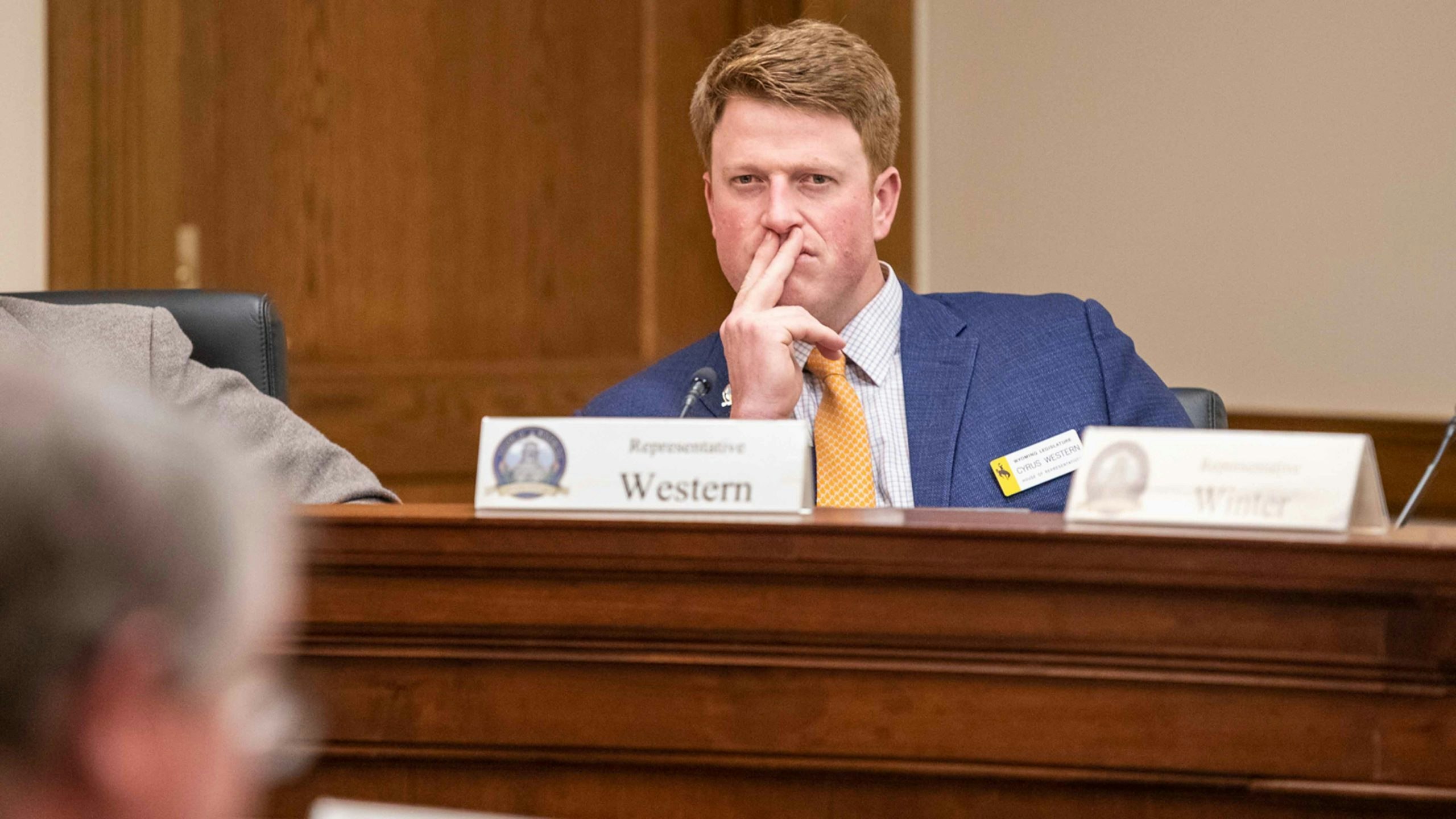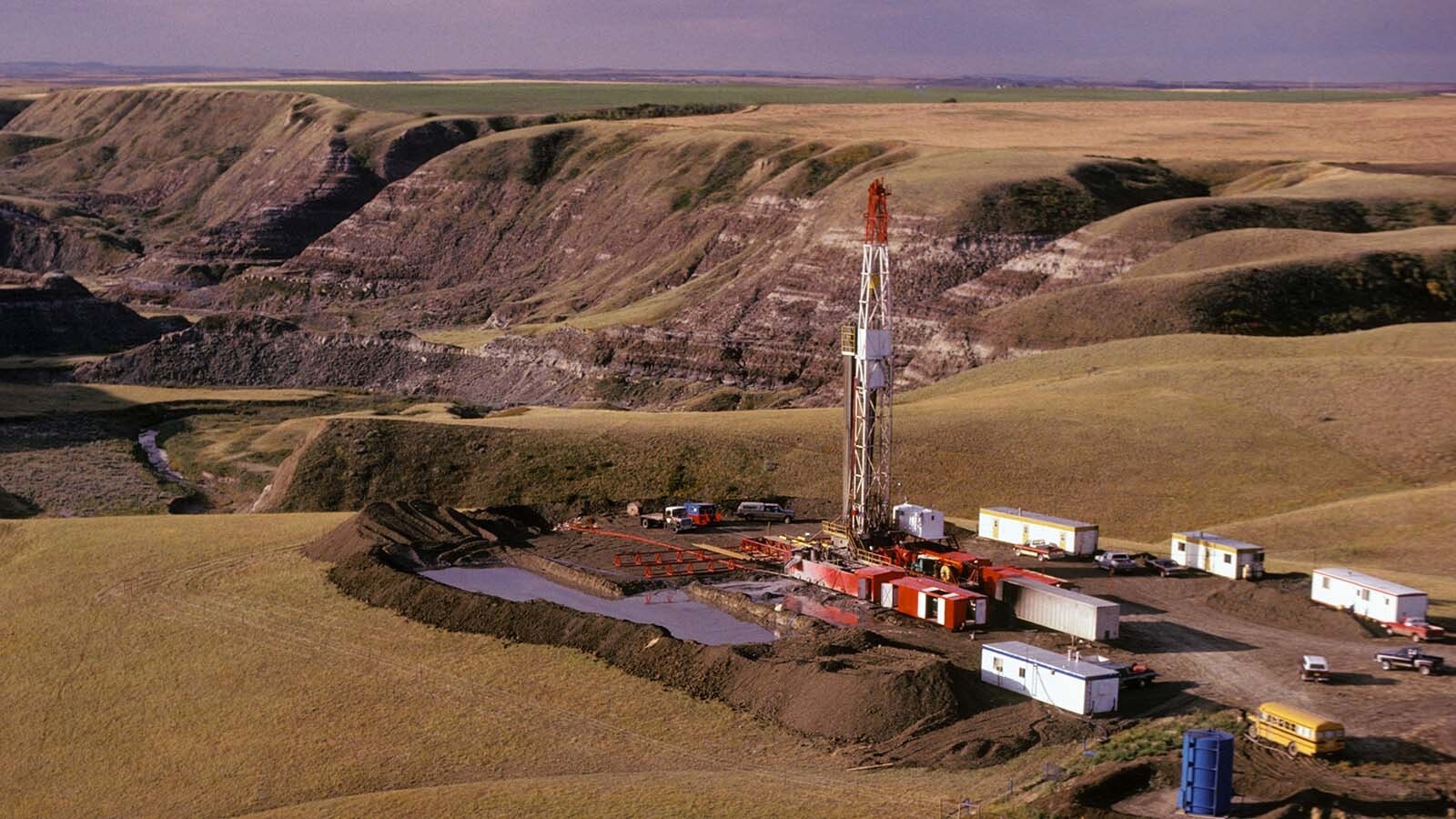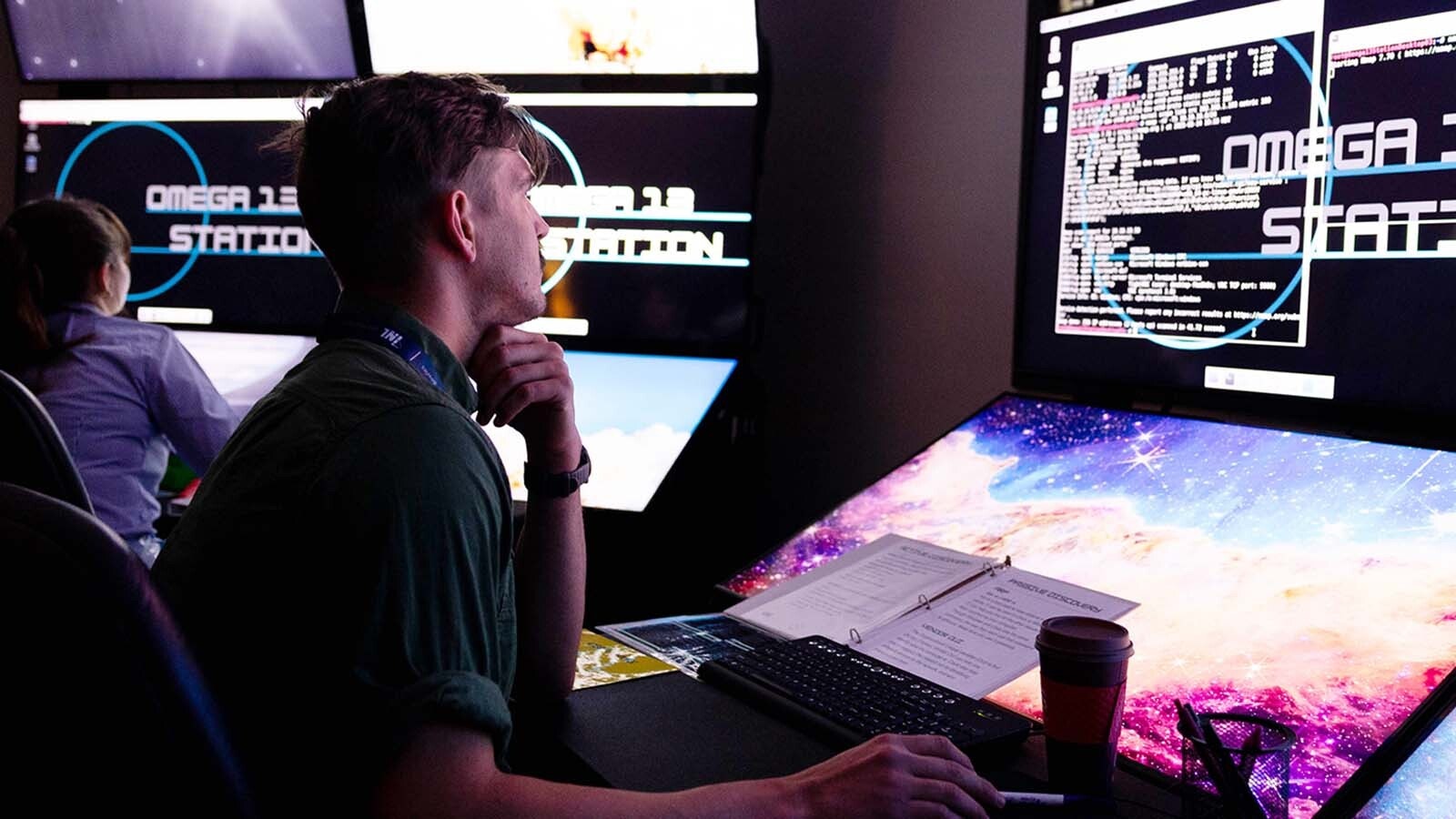Concerned about recycling ending up being burned or dumped in Asian landfills, state Rep. Cy Western, R-Big Horn, said he only recycles aluminum cans.
On his Twitter account, Western shared a Bloomberg article about plastic waste ending up in India, where instead of being recycled it’s burned or ends up in illegal landfills.
“This is why I don’t recycle,” with the exception of aluminum cans, Western commented along with the article.
Mary Throne, a former legislator and current Wyoming Public Service commissioner, replied to the tweet with, “Reduce, reuse and maybe, recycle?”
Western didn’t respond back to Throne.
Good Feels
Making paper from wood pulp has become so expensive that recyclable waste paper from the United States and other developed countries has become a valuable commodity for India’s paper companies, according to Bloomberg.
The problem is that paper materials aren’t always properly separated from plastic trash, and it creates a route for plastic waste to get shipped from the U.S. and Canada to India. A large portion of it is Amazon delivery packaging.
Once in India, the plastic garbage ends up tossed into landfills or burned in incinerators, polluting the environment and impacting health.
“We have a bunch of greenies who want to feel good about themselves versus asking the tough questions,” Western told Cowboy State Daily. “Is it actually benefiting the environment? Are we actually saving time and money?”

Global Problem
The Bloomberg article wasn’t the first report on plastic recycling ending up in Asia and not getting recycled.
Another Bloomberg report in November found that Thailand has become a prime destination for plastic recyclables because of its lax environmental regulations and cheap labor. Much of the plastic, however, was simply burned.
Science News reported in 2020 that 31% of plastic exported from Europe for recycling was being dumped in Asian waters.
“In fact, you’re harming the environment because it’s going to landfills that have really lax regulations,” Western said.
Or, he continued, the end is “some poor kid in India breathing a bunch of nasty, smelly smoke from an incinerator that doesn’t completely burn the plastic and emits a bunch of nasty chemicals.”
Western said there are some recycled products that have such a good return that it makes sense to put them in the recycling bin because you can have confidence they’ll get used.
“Aluminum cans get recycled. They actually do get used to repurpose aluminum, and they save a lot of bucks,” he said. “They save a lot of energy in the process, so that makes sense.”
Properly Sorted
A few rural recycling centers in Wyoming ship their materials to Interwest Paper Inc. in Salt Lake City.
Beau Peck, Interwest’s director of marketing and zero waste services, said the waste plastic streams that get shipped overseas, along with recyclable paper, happens in larger cities, where all recyclables are thrown together.
Then, at the processing center, robots and machinery separates it, Peck said. This is how Cheyenne’s recycling program works, which ships its collected material to a facility in Colorado.
“The bigger the city, the more contamination you’re likely to have,” Peck said.
More Success With Rural Efforts
Most rural programs separate at the collection facility. For example, Powell Valley Recycling in Powell, which serves residents throughout Campbell County, once kept bins outside the facility on weekends and after hours so people could drop off recycled materials. People would often dump materials that couldn’t be recycled or put them in the wrong bin. In an effort to keep their recyclables properly sorted, they only take materials during business hours when staff is available to monitor what’s dropped off.
“Where the issue is, is large commercial, single-stream recycling centers that are pumping out 20, 30 tons an hour. Those types of centers aren’t able to capture everything,” Peck said.
Peck added that with the holidays flooding solid waste with a lot of packaging, there’ll be a lot of plastic mixed in.
“A lot of paper products that have plastic windows embedded into them.They’re just not recyclable. Too much of that gets into the paper stream,” Peck said.
Fine-Toothed Comb
When bales of paper come to Interwest, Peck said, the employees spot check every single load that comes in. Then, during processing, when they grade the material for its quality, they give it a closer look.
“They’re looking at it with a fine-toothed comb,” Peck said.
If they do find problems with the materials they bring in, it gets sent to waste energy plants, which burn the material to produce electricity and heat, or sometimes, it gets sent back to the customer.
Peck said that doesn’t happen very often. They interact closely with their customers and provide enough education so they know what will and won’t be accepted at the Salt Lake City facility.





